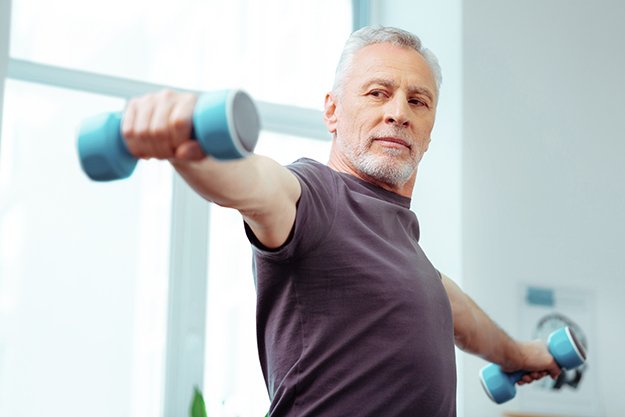
Hormone Health TRT


Perimenopause can feel like a whirlwind—a little hot, a little moody, and extremely confusing. Women navigating this transitional phase often wonder if there is a magic pill to make it all better.
Although we can’t promise a one-size-fits-all cure, the right supplements can be a game-changer for alleviating hot flashes, night sweats, mood swings, fatigue, and other unpleasant symptoms.
Today, we will delve into the best supplements for perimenopause. But let’s face it: hormones are complicated, and supplements can only do so much on their own. Therefore, we will also share tips on finding high-quality options and creating a holistic plan that works.
Looking for effective ways to alleviate unpleasant symptoms? Here is a list of the best supplements for perimenopause.
As estrogen levels begin to drop, your bones may become more porous and fragile. Consuming enough calcium can help maintain your bone health throughout perimenopause. Although it’s best to obtain calcium through a balanced diet, supplements can help fill the nutritional gaps. For menopausal women, the recommended calcium intake is between 1,000 and 1,200 milligrams per day.1
While discussing perimenopause supplements for bone health, let’s not forget about vitamin D. The “sunshine vitamin” is essential for calcium metabolism in the body. Vitamin D synthesis starts in the skin through sunlight exposure and continues in other organs and tissues until the active form is produced, 1,25-dihydroxyvitamin D3 [1,25(OH)2D3]. Deficiencies are common, but diet and supplements can fill in the nutritional gaps.1 Not only can vitamin D help strengthen your bones, but it might also alleviate mood swings and depressive symptoms.
DHEA (dehydroepiandrosterone) is a steroid hormone used to produce estrogen or testosterone. In theory, supplementing DHEA can help balance your hormones during perimenopause. Some studies have found DHEA to help with vasomotor symptoms such as hot flashes and night sweats, reduce bone loss, increase muscle mass, and even support the immune system during perimenopause.2 When administered intravaginally, DHEA appears to help with dryness.2,3 However, long-term use of DHEA might carry some risks.3
Black cohosh is one of the best natural supplements for perimenopause. The extract comes from the root of the North American black cohosh plant. Several studies have found it to help balance out hormones and reduce hot flashes and night sweats.4
You might be wondering—how did soy make it to the list of perimenopause supplements? It contains phytoestrogens, which are plant-based compounds with estrogen-like effects. Some research indicates soy might help with vasomotor symptoms and reduce the risk of cardiovascular disease and various types of cancer.5
Red clover is another herbal supplement that contains isoflavones, molecules that mimic the effects of estrogen in the body. According to a recent review study, red clover supplementation might prevent hot flashes, support heart health, and reduce the risk of various types of cancer.6 However, the evidence is mixed.
Wild yam is a herbal remedy used to alleviate hormonal imbalances in perimenopausal women. Some proponents suggest it can even be used as a substitute for hormone replacement therapy (HRT). Some research shows it might protect against bone mass loss and various types of cancer.7 Although it has minimal side effects, there is limited scientific evidence to support its efficacy.8
Ginseng is a traditional medicine known for its beneficial effect on stress relief and energy levels. It's also used to support immune health, mental clarity, and overall well-being. During perimenopause, ginseng may help with fatigue, mood swings, libido, and sleep disturbances, though more research is needed to confirm its effectiveness.9
A traditional Chinese medicine, dong quai, has a long history of helping women with various reproductive health conditions.10 Also known as “female ginseng”, dong quai might help with hot flashes and mood swings, but more research is needed to support its efficacy.11
Vitex agnus castus, also known as chasteberry, is a popular herbal remedy in women's reproductive health. It has been shown to be effective for mild premenstrual symptoms and may also have a role in treating premenstrual dysphoric disorder (PMDD).12 However, the evidence regarding its effectiveness in perimenopausal women is mixed.13
The therapeutic effect of vitex may result from its indirect influence on various hormones, particularly prolactin and progesterone. These hormonal effects seem to be dose-dependent; low doses have been shown to decrease estrogen while increasing progesterone and prolactin levels.14
Maca root, also known as Peruvian ginseng, is a plant native to the Andes. It has been traditionally used as both a food and a natural remedy to enhance libido and fertility in both men and women. Maca may be helpful for alleviating perimenopausal symptoms by influencing hormone levels.14 However, the evidence is limited and further research is needed to confirm its efficacy and safety for this use.15,16
Choosing your supplements wisely is essential for maximizing their health benefits. Here are a few tips on how to select high-quality options:
Wouldn't it be great if taking a handful of pills could resolve all the unpleasant perimenopause symptoms? It sounds tempting, but supplements aren't a cure-all. A combination of different interventions leads to the best results.
Navigating perimenopause requires a comprehensive, health-focused approach that integrates dietary changes, lifestyle adjustments, and the strategic use of supplements.
Perimenopause comes with many unpleasant symptoms. Supplements like calcium, vitamin D, DHEA, black cohosh, soy, red clover, wild yam, ginseng, dong quai, vitex, and maca are widely used by women to relieve discomfort, although some are not fully backed by research.
You are likely to achieve the best results by combining perimenopause supplements with a nutrient-rich diet, a consistent exercise routine, quality sleep, and stress management techniques.
However, it’s important to remember that before introducing any new supplements, you should reach out to your healthcare provider. This is especially true if you are trying to conceive or are breastfeeding.
Don’t worry; you don’t have to figure it all out by yourself. You can always reach out to Opt Health physicians for more information and guidance. Together, we can craft a personalized, holistic plan for feeling your best while navigating new chapters of your life.
1. Erdélyi A, Pálfi E, Tűű L, et al. The Importance of Nutrition in Menopause and Perimenopause-A Review. Nutrients. 2023;16(1):27. doi:10.3390/nu16010027
2. Tang J, Chen LR, Chen KH. The Utilization of Dehydroepiandrosterone as a Sexual Hormone Precursor in Premenopausal and Postmenopausal Women: An Overview. Pharmaceuticals (Basel). 2021;15(1):46. doi:10.3390/ph15010046
3. Wierman ME, Kiseljak-Vassiliades K. Should Dehydroepiandrosterone Be Administered to Women? J Clin Endocrinol Metab. 2022;107(6):1679-1685. doi:10.1210/clinem/dgac130
4. Castelo-Branco C, Gambacciani M, Cano A, et al. Review & meta-analysis: isopropanolic black cohosh extract iCR for menopausal symptoms – an update on the evidence. Climacteric. 2021;24(2):109-119. doi:10.1080/13697137.2020.1820477
5. Chen LR, Chen KH. Utilization of Isoflavones in Soybeans for Women with Menopausal Syndrome: An Overview. International Journal of Molecular Sciences. 2021;22(6):3212. doi:10.3390/ijms22063212
6. Zukić M, Taljić I, Banjari I. Effectiveness of Commercial Red Clover (Trifolium pratense L.) Products for the Treatment of Symptoms in Menopausal Women—A Narrative Review. Nutraceuticals. 2024;4(3):430-449. doi:10.3390/nutraceuticals4030026
7. Herbal preparations for the menopause: Beyond isoflavones and black cohosh - ScienceDirect. Accessed January 19, 2025. https://www.sciencedirect.com/science/article/abs/pii/S0378512213003514
8. Komesaroff PA, Black CVS, Cable V, Sudhir K. Effects of wild yam extract on menopausal symptoms, lipids and sex hormones in healthy menopausal women. Climacteric. 2001;4(2):144-150. doi:10.1080/cmt.4.2.144.150
9. Ghorbani Z, Mirghafourvand M, Charandabi SMA, Javadzadeh Y. The effect of ginseng on sexual dysfunction in menopausal women: A double-blind, randomized, controlled trial. Complementary Therapies in Medicine. 2019;45:57-64. doi:10.1016/j.ctim.2019.05.015
10. Ames H. Dong quai: Uses, dosage, and side effects. Medical News Today. November 8, 2023. Accessed January 19, 2025. https://www.medicalnewstoday.com/articles/dong-quai
11. Al-Bareeq RJ, Ray AA, Nott L, Pautler SE, Razvi H. Dong Quai (angelica sinensis) in the treatment of hot flashes for men on androgen deprivation therapy: results of a randomized double-blind placebo controlled trial. Can Urol Assoc J. 2010;4(1):49-53.
12. van Die MD, Burger HG, Teede HJ, Bone KM. Vitex agnus-castus extracts for female reproductive disorders: a systematic review of clinical trials. Planta Med. 2013;79(7):562. Epub 2012 Nov 7.
13. van Die MD, Burger HG, Bone KM, Cohen MM, Teede HJ. Hypericum perforatum with Vitex agnus-castus in menopausal symptoms: a randomized, controlled trial. Menopause. 2009;16(1):156-163. doi:10.1097/gme.0b013e31817fa9e0
14. Roemheld-Hamm B. Chasteberry. Am Fam Physician. 2005;72(5):821-824.
15. Lee MS, Shin BC, Yang EJ, Lim HJ, Ernst E. Maca (Lepidium meyenii) for treatment of menopausal symptoms: A systematic review. Maturitas. 2011;70(3):227-233. doi:10.1016/j.maturitas.2011.07.017
16. Meissner HO, Reich-Bilinska H, Mscisz A, Kedzia B. Therapeutic Effects of Pre-Gelatinized Maca (Lepidium Peruvianum Chacon) used as a Non-Hormonal Alternative to HRT in Perimenopausal Women - Clinical Pilot Study. Int J Biomed Sci. 2006;2(2):143-159.
Your health, your terms. Discover how personalized care can transform not just the way you feel, but how you live.